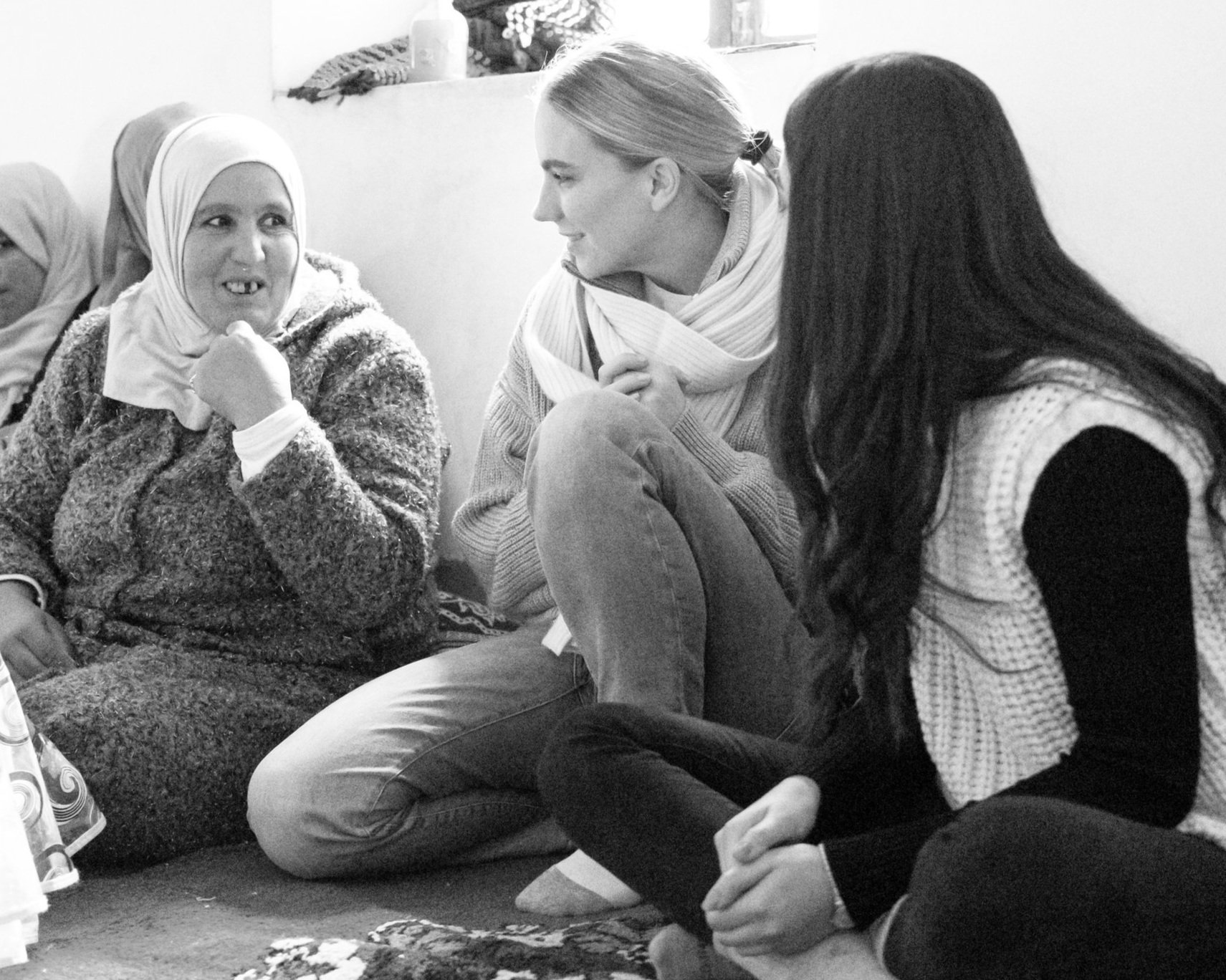On the Road in Ouarzazate
A dispatch from our founder and CEO Rachel Vestergaard, who recently visited our Livelihoods Project in Morocco.
On a clear spring day, I made my way from the city of Ouarzazate to a small Berber village in the foothills of the High Atlas mountains. The Berber people in this region of Morocco are part of an ancient civilization who have lived here for twelve millennia. Their expertise in textile weaving has been handed down from generation to generation, and the soft, colorful carpets they make are coveted around the world.
I came to visit some of the Berber women who are part of Empower Co.’s Morocco project, which focuses on supporting women in agriculture and handicraft production. Since 2013, the Agriculture Cooperative has provided local women with training in farming and ranching, as well as a resilient and prolific breed of sheep called ‘Dman.’ The women who greeted me took me to see their herds relaxing in the afternoon sun. “Touch them!” they encouraged, so I gave the nearest ewe a scratch behind the ears. My fingers sank into her impossibly soft, thick fleece—it’s easy to see why this breed is so perfect for producing the wool for those famous rugs.
Later, as a group of us sat on a mosaic of those carpets, brilliantly tinted with shades of saffron, magenta, and yellow and cobalt blue, the women explained that once, the sheep grazed along the banks of the river that flowed through this valley. Sadly, five years of extreme drought had choked off the water supply to the valley. The river had evaporated to dust. “Nothing grows,” they said. Although a government program pays them a small annual stipend to keep their herds, the women have to immediately reinvest this income into buying feed so that their sheep can survive.
I asked what they might spend the income on if feed was not an issue. “School supplies,” said one woman. “Yes, pencils, and clothing for the kids,” said another woman. It struck me how intuitively these mothers prioritized the wellbeing of their children. It’s no wonder that study after study has shown that the more women have control over financial assets, the benefits ripple out to their entire households and communities.
In spite of this fact, the economic potential of women remains stifled in many parts of the world. Here in Tidghesete, sheepherding is one of the few sources of income that women actually have access to. Although their husbands work in the city and are absent for long stretches of time, they strictly curtail their wives’ opportunities. Fortunately, since herding can be done near home, the women are permitted to keep the sheep and the profits they get.
In another village called Ghassate, I met with women who were part of our project’s handicraft cooperative. They showed me their prized sewing machines and some of the beautiful products they had sewn including butterfly caftans, hand-knit baby sweaters, and beautiful embroidery work. They also produce active wear products for kids that have become a sort of “school uniform” for local children. In addition to being part of the handicraft cooperative, many of the women who never had the chance to attend school as a child also took advantage of the free adult literacy courses that the project offers.
The vast majority of them were single, I learned, and though they were all at an age when women in their communities typically got married, they explained that learning to read and be seamstresses had changed their outlook. They were less desperate to find husbands, and curious to see how far their skills could take them. One of the young women seated with us, a 13-year-old girl, explained that she wanted to become a doctor.
I spent hours listening to the women’s stories and struggles and was deeply moved by their generosity. In addition to feeding me the most delicious bread and lamb tagine I have ever tasted, one woman offered me a handful of almonds which had taken her the entire morning to shell by hand.
As I headed back to Ouarzazate, I wondered how the worsening drought would affect these communities. Nowhere had I seen clearer evidence of how climate change robs future generations of their educational and economic opportunities. But counterbalancing this bleak outlook was my awe at the resiliency, resourcefulness, and creativity of the Berber women. I reflected on how much they strive to do with the little they have, and how big their aspirations are. These women deserve support as they work to transform their own lives and the lives of their children.
The drive back was an uninterrupted stretch of brown desert, but as we crested a hill, I saw an astonishing orchard of almond trees in full bloom, their clouds of white blossoms stretching into the sky, raining petals onto the sand.


